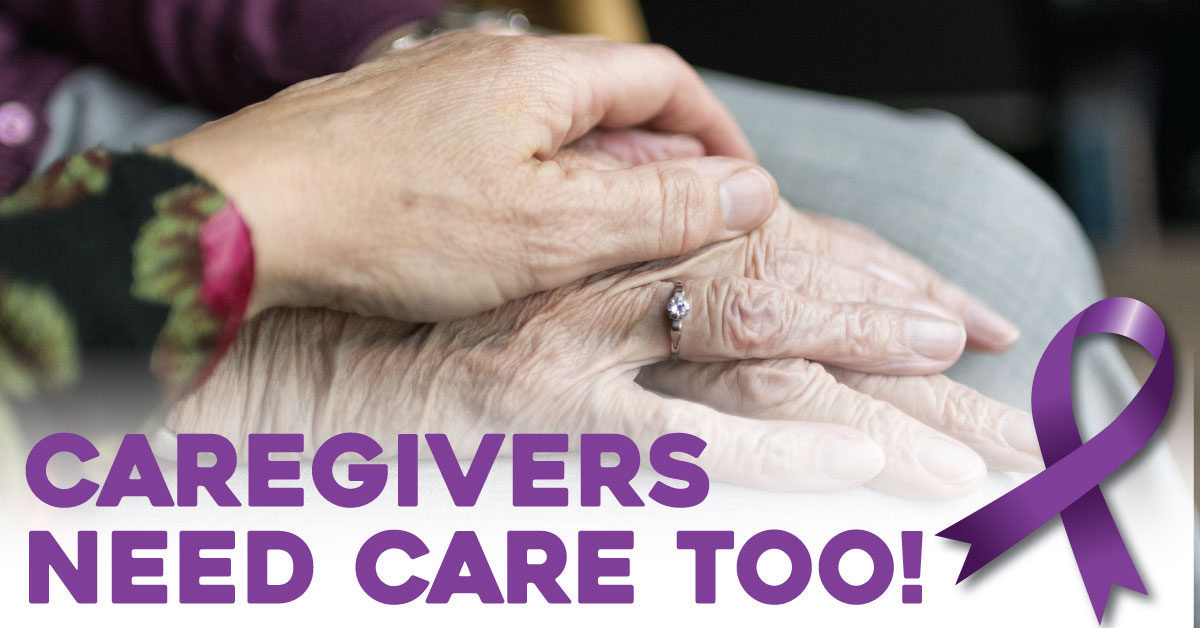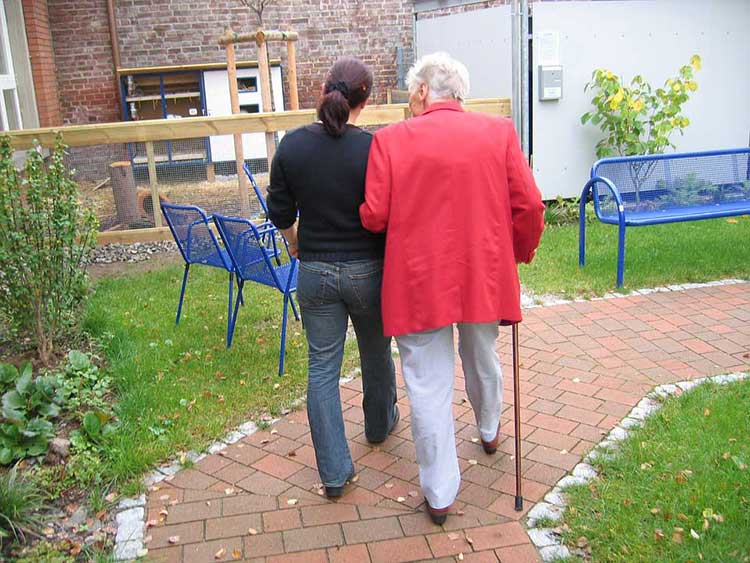Being a caregiver for an Alzheimer’s patient is a physically, mentally, and emotionally exhausting job. Often caregivers experience health issues related to the stress of the responsibility of caring for an Alzheimer’s patient. They fail to take care of themselves and don’t have the support they need. The stress for caregivers is very real, but there are measures that can be taken to reduce the detrimental effects of caregiving.
What causes caregiver stress?
Caregiver stress is can be attributed to several factors. Caring for an Alzheimer’s patient, especially a family member, can be filled with overwhelming emotions. The caregiver often feels grief from losing the loved one they once knew. Extreme exhaustion can also cause caregiver stress. The caregiver may be dealing with behavior issues with the Alzheimer’s patient, such as aggression, wandering, and sleep-related problems. This causes the caregiver to experience physical exhaustion as well as mental and emotional exhaustion. Another cause of caregiver stress is isolation and loneliness. The caregiver often gives so much time and energy to the Alzheimer’s patient that they are left with no time for social interaction.
What are risks of caregiver stress?
The stress caused by caring for an Alzheimer’s patient can increase the risk of health problems for the caregiver. Physical health issues are usually related to the caregiver neglecting their own health. They may not get regular check-ups or they may neglect their own diet and activity. This leads to poor health and the risk of other diseases. Although the physical effects of caregiver stress are very real, the psychological effects are often more prevalent and cause more problems for the caregiver. In fact, the psychological effects often lead to more physical effects. For example, chronic stress can lead to chronic pain, sleeplessness, elevated stress hormones, and blood pressure. Caregivers are also prone to depression caused by prolonged feelings of sadness, guilt, loneliness, frustration, and fear. Sleeplessness and exhaustion can also add to symptoms of depression. The stress can often lead to burnout in the caregiver. Caregiver burnout can lead the caregiver down a similar path as stress. It may cause the caregiver to be more irritable with the Alzheimer’s patient. It may also cause the caregiver to turn to other substances such as alcohol and drugs. Chronic stress in caregivers is an issue that is important to recognize and manage.
What are ways to prevent or help manage caregiver stress?
Caregivers sometimes recognize the effects of stress in their own lives, but often it is those around the caregiver who recognize the warning signs. It is important that the caregiver and the caregiver’s loved ones are familiar with the signs and methods for managing stress. One of the best ways caregivers and their loved ones can help is to be educated about Alzheimer’s disease, caring for Alzheimer’s patients, and the risks associated with caregiving. Caregivers must know that it is acceptable to ask for help. They need to be prepared with ways to get support from family, friends, or even Alzheimer’s support groups. There are many groups that meet, these can be found through a quick internet search or by asking the Alzheimer’s patient’s physician. Families need to find ways to offer support and be ready and willing to give the caregiver time off. Another help is to find ways to manage stress. This could be through a hobby, meditation, or physical activity like yoga. Caregivers must take care of themselves in order to manage stress related to caregiving. Family members and even friends of the caregiver must be honest with the caregiver when they see warning signs and should never judge the struggles of the caregiver.
The bottom line is caregiver stress is a very common problem for caregivers of Alzheimer’s patients. It is likely to be a problem for the caregiver at some point in the progression of the disease. However, if the caregiver and their supporters are prepared, the risks associated with the stress are likely to be lessened and the stress does not have to be chronic. If you are a caregiver, seek support, find an outlet, and take care of yourself. If you love a caregiver, support them, be honest if you see warning signs, and help the caregiver help themselves.
If you have any questions about something you have read or would like additional information, please feel free to contact us. (207)848-5600
Check out more helpful information here:
https://www.alz.org/help-support/caregiving




